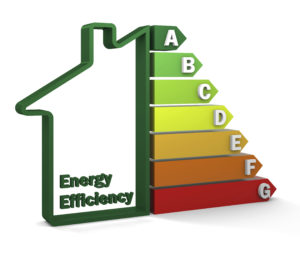Save Money with Spray Foam Insulation. The U.S. department of energy claims that heating and cooling accounts for over half an average home’s energy expense, making climate control one of the largest expenses of home ownership outside of the mortgage. While modern technology has greatly reduced the energy required for heating and cooling equipment to function, the most effective way to cut costs is to actually reduce the demand upon the equipment with insulation. Expanding spray foam insulation is by far the most efficient method of insulating a traditionally built structure.
The cost of poor insulation

United States energy labs have determined that air infiltration wastes nearly 40% of every dollar spent on climate control. Similar studies demonstrated that nearly 30 billion dollars was spent on energy wasted through air infiltration or convection losses in 1984 alone. Insulation code requirements have since been increased to help rectify the problem, but infrared imaging technology has revealed that increased R-values in traditional insulation has done little to reduce the losses through convection. Spray foam insulation expands to nearly one 100 times its original size, filling every crack, creating an air tight foam seal, virtually eliminating air transfer through the material itself.
Spray foam Insulation as an investment
The up front cost of spray foam insulation is slightly higher than traditional insulating techniques, but this initial expense is one of the surest investments a homeowner will ever make. Spray foam insulation can reduce energy consumption enough to recoup the initial cost in less than three years at the current rates. Since the cost of energy is consistently rising, the expense will most likely become annual savings in even less time, and these savings will continue to increase in proportion to the cost of energy.
The savings of spray foam insulation
The immediate savings from spray foam insulation are apparent in the monthly utility bills. The foam seal created by spray foam insulation can reduce air infiltration by over 90%, translating to 30-40% reduction in energy costs when compared to traditional insulation. In conjunction with efficient HVAC equipment and other environmentally responsible designs, spray foam insulation can save nearly 70% of an average home’s energy consumption. These immediate savings will only increase through time. The department of energy predicts that energy consumption will increase by 1.5% annually through the year 2020 as the availability of fuel sources simultaneously decreases, making energy conservation techniques like spray foam insulation a major concern for the home construction industry. The government and private organizations recognize the importance of this issue and are offering further savings to the owners of efficient homes. Spray foam insulation can help you qualify for a low rate efficient home mortgage (Information available at the FCIC website), and there are tax incentives available for energy conscious homes.
